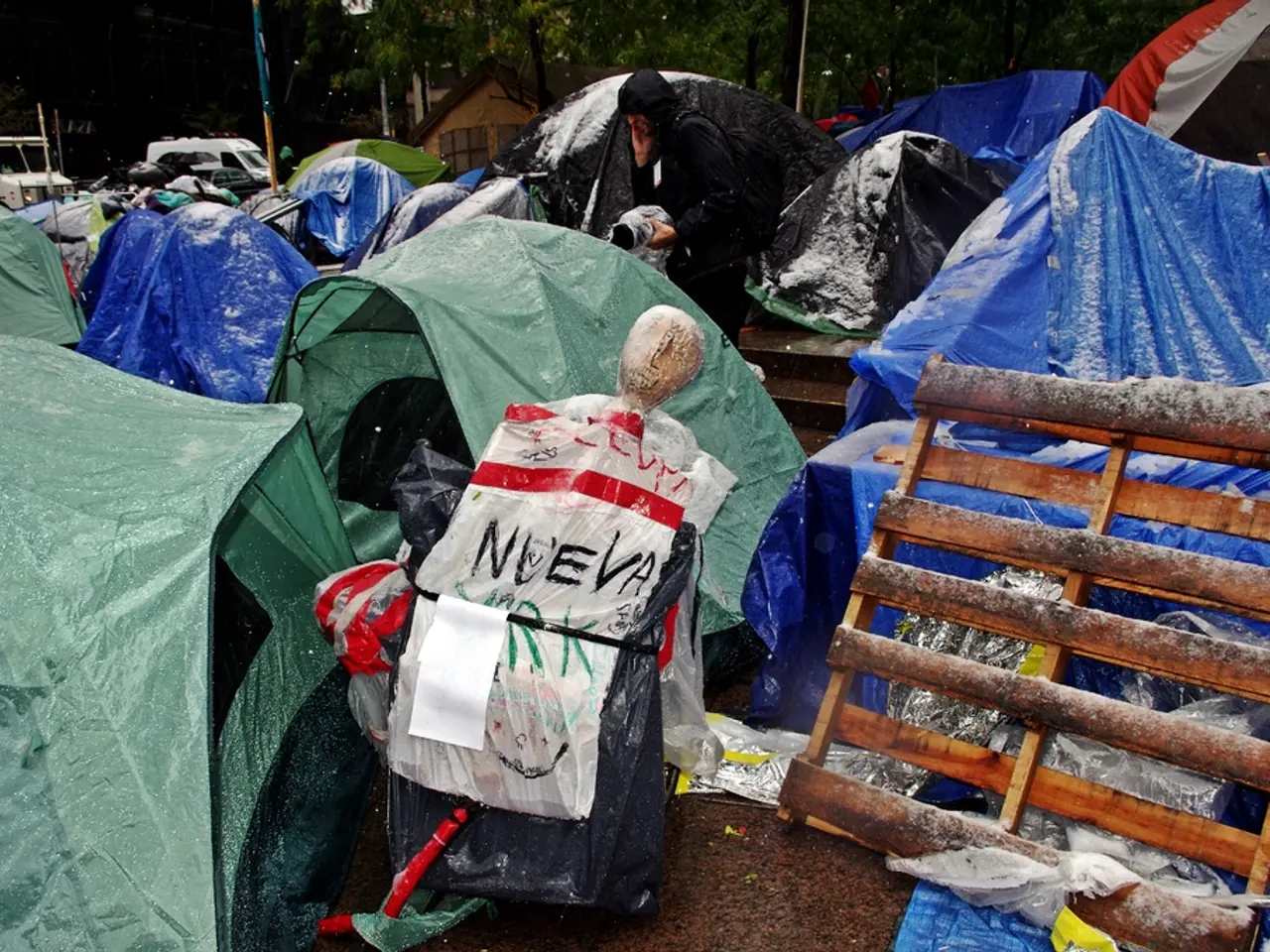Home Protection Against Storm Damage: Strategies by Hagel & Co to Secure Your House from Weather Mishaps
In the ever-changing world of property ownership, having the right building insurance is crucial. Known as home insurance, this property insurance covers financial losses to your home, protecting you from unexpected damages.
When you rent out your building and your tenants pay less for damages, building insurance can provide you with a financial safety net. But with various tariff variants available, such as the light version, a basic package, and the premium version, choosing the right one can seem daunting.
Insurers often offer additional services that can be agreed upon. These may include power surge damage, costs for clearing and demolition work, temporary securing and guarding of the damaged building, hotel costs for the time when the house is uninhabitable, and more.
Depending on where you live, insuring against natural disasters like floods or earthquakes can be beneficial. For instance, Germany faces increasing extreme weather events such as floods and storms, driving the need for adequate protection against these risks.
Assessing your home's value and features is an essential step when looking for building insurance. Evaluate the size, age, construction materials, special features, and overall condition of your building (including the roof) since insurers base coverage and premiums on these. Understand how much it would cost to rebuild or repair your home considering current local building material and labor costs. This is important because insurance should cover actual replacement costs, which may differ from your purchase price.
Compliance with building codes is another factor to consider, especially if your home is older and not up to current building regulations. Consider adding coverage to handle upgrade costs after a claim—e.g., ordinance or law coverage.
When choosing building insurance, it's essential to consider the extent and type of coverage. Decide on the level of coverage (e.g., fire, storm, water damage, natural disasters) and any additional endorsements like liability protection or coverage for other structures on the property.
In the regulated and complex insurance market in Germany, selecting a reputable insurer known for smooth claims processing and compliance is important. Weigh the premium cost against coverage limits, exclusions, and deductibles to ensure you are financially protected without overpaying.
When signing a building insurance contract, always pay attention to what is defined as an outbuilding and fixture. Disputes can arise about what really belongs to the house and whether the greenhouse in the garden or the treehouse for the children are insured. Or whether the built-in kitchen is actually covered by the household contents insurance.
By considering these factors, you can ensure you get appropriate building insurance tailored to your property’s characteristics, the risks typical for your region in Germany, and your financial setup.
In the process of assessing your building's insurance needs, you might also want to consider acquiring insurance for other sports equipment or recreational facilities in case of damage.
Moreover, if your building includes additional structures for outdoor activities like tennis courts or swimming pools, it might be beneficial to expand your insurance policy to cover these.





